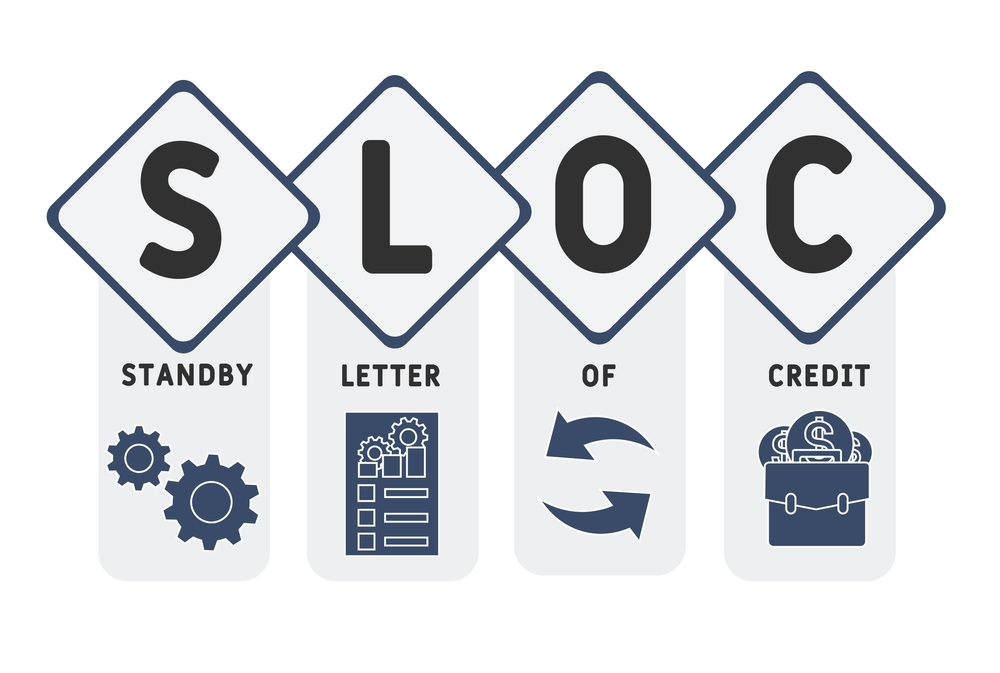A Performance Standby Letter of Credit (PSLOC) is a vital safeguard in finance and commerce, providing assurance and peace of mind to parties engaged in contractual agreements. This financial instrument is a powerful guarantee, ensuring that contractual obligations are met with unwavering commitment. But what exactly is a Performance Standby Letter of Credit, and how does it function?
Here, we will delve into the intricacies of PSLOC, shedding light on its definition, key features, and the seamless mechanism that underpins its functioning. By the end, you will clearly understand this essential tool that fosters trust and ensures the successful execution of various business transactions.
What is a Performance Standby Letter of Credit (PSLOC)?
A Performance Standby Letter of Credit, commonly known as PSLOC, is a financial guarantee provided by a bank on behalf of a client to ensure that the client fulfils their contractual obligations. It acts as a safety net, protecting the beneficiary if the client fails to meet specific performance criteria outlined in a contract.
How Does a Performance Standby Letter of Credit Work?
When two parties enter into a contract, the beneficiary (usually the party receiving goods or services) may request a PSLOC from the client (the party providing goods or services). The issuing bank then assures the beneficiary that if the client fails to perform per the contract’s terms, the bank will pay on their behalf.
Parties Involved
The parties involved in a Performance SBLC are:
Applicant:
The party requesting the SBLC from the issuing bank.
Beneficiary:
The party to whom the SBLC is issued, usually the contract counterparty.
Issuing Bank:
The bank that issues the Performance SBLC on behalf of the applicant.
Advising Bank:
An advising bank may be involved if the beneficiary is located in a different country.
Activation and Termination Criteria
The Performance SBLC is activated when the beneficiary demonstrates that the applicant has not met the non-financial obligations. Upon activation, the issuing bank transfers the agreed-upon amount to the beneficiary. The SBLC remains in effect until the contract terms are fulfilled or its expiration date.
Key Features of Performance SBLC
The features that make Performance SBLCs unique include the following:
Performance Assurance:
The SBLC assures the beneficiary that the applicant will meet all the non-financial performance criteria specified in the contract.
Timeliness:
Performance SBLCs often include a specific timeframe for meeting the obligations.
Quality Standards:
The SBLC may define the required quality standards for the applicant’s services or goods.
Types of Performance Standby Letter of Credit
Direct Pay PSLOC:
In this type, the beneficiary can demand payment directly from the bank without providing proof of default by the client.
Default Pay PSLOC:
The beneficiary can receive payment from the bank only after providing evidence of the client’s failure to perform as per the contract.
Advantages of Performance Standby Letter of Credit
Risk Mitigation for Beneficiaries
The Performance SBLC provides a safety net for beneficiaries, reducing the risk of non-performance by the applicant.
Building Trust Between Parties
By incorporating a Performance SBLC into a contract, the parties demonstrate their commitment to fulfilling their obligations, fostering trust in the business relationship.
Flexibility in Business Transactions
Performance SBLCs offer flexibility in negotiating contracts, allowing parties to agree on terms confidently.
Utilizing Performance Standby Letters of Credit in Different Industries
Construction Industry
Performance SBLCs ensure contractors adhere to project timelines and deliver quality work in construction projects.
Import and Export Businesses
International trade often involves Performance SBLCs to guarantee product quality and timely delivery.
Service Providers
Service-based contracts may include Performance SBLCs to ensure the satisfactory completion of services.
The Application Process for a Performance Standby Letter of Credit
Documentation Requirements
Applicants must submit the necessary documents and information to the issuing bank to initiate the SBLC issuance process.
Issuance and Fees
The issuing bank evaluates the applicant’s creditworthiness and may charge fees for issuing the Performance SBLC.
Key Considerations and Best Practices
Choosing the Right Issuing Bank
Selecting a reputable and reliable issuing bank ensures a smooth SBLC experience.
Understanding the Governing Rules (UCP 600, ISP98)
A clear understanding of the applicable rules and regulations enhances the effectiveness of the Performance SBLC.
Complying with International Regulations (URDG 758)
Adherence to international trade regulations is essential for successful transactions.
Tips for a Successful Performance SBLC Experience
Communication and Collaboration
Open communication and collaboration between parties contribute to a successful outcome.
Ensuring Compliance
Ensuring compliance with the terms of the SBLC and the underlying contract is critical.
Conclusion
The Performance Standby Letter of Credit plays a vital role in international trade and business by assuring non-financial performance obligations. Its ability to mitigate risks, build trust, and foster flexibility makes it an indispensable financial instrument in modern commerce.
FAQs
What is the primary purpose of a Performance Standby Letter of Credit?
The primary purpose of a Performance SBLC is to ensure that the applicant fulfils its non-financial obligations as specified in a contract, providing performance assurance to the beneficiary.
Can a Performance Standby Letter of Credit be used in any industry?
Yes, a Performance SBLC can be utilized in various industries where non-financial performance obligations must be guaranteed.
Do specific rules and regulations govern the Performance SBLCs?
Yes, Performance SBLCs are governed by international rules and guidelines, such as UCP 600 and ISP98, which ensure consistency and clarity in their implementation.
What happens if the applicant fails to meet the performance obligations?
If the applicant fails to meet the performance obligations, the beneficiary can claim the agreed-upon amount from the issuing bank.
Can a Performance SBLC be extended beyond its expiration date?
Sometimes, the SBLC may be extended if both parties agree to do so and the issuing bank approves the extension.


